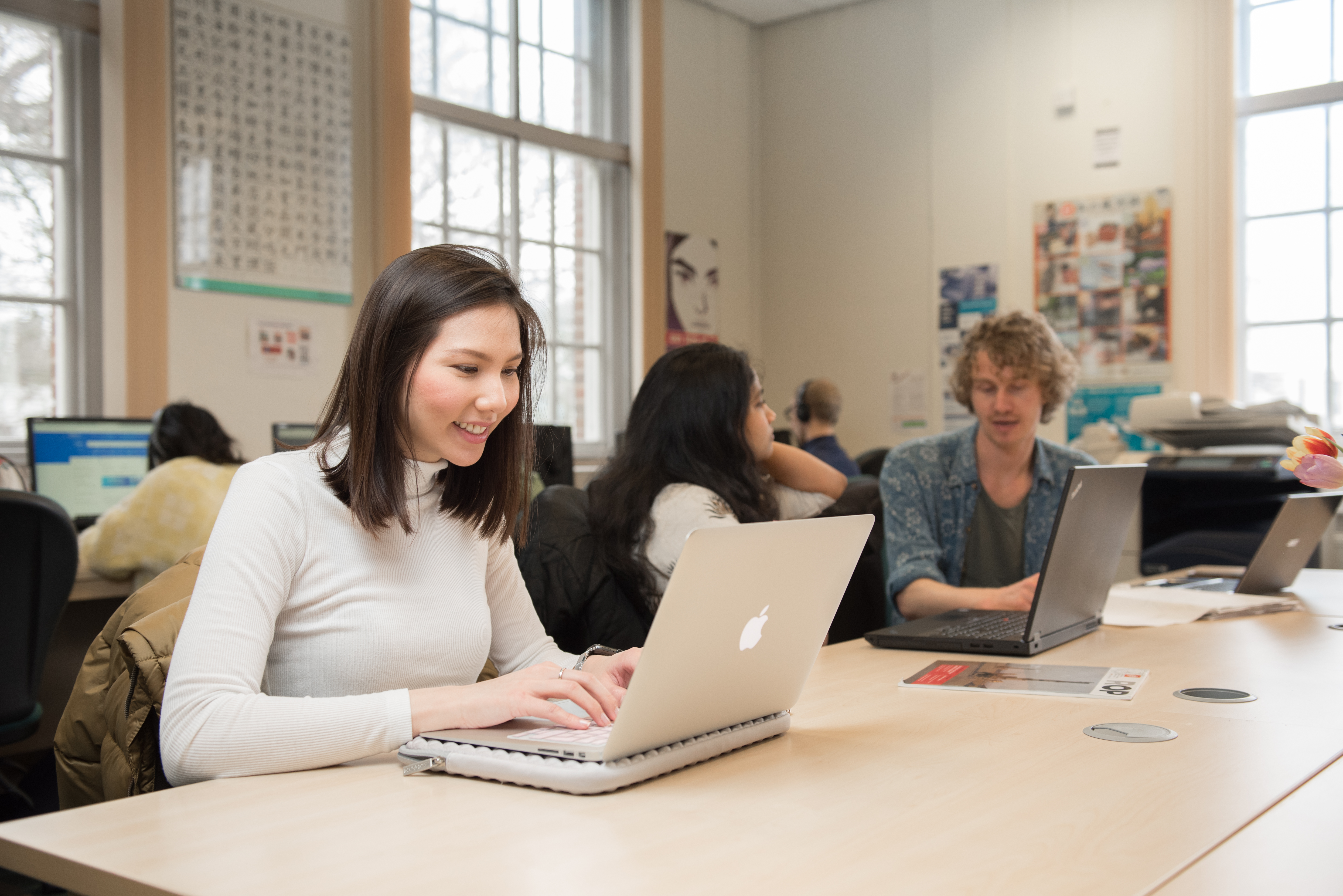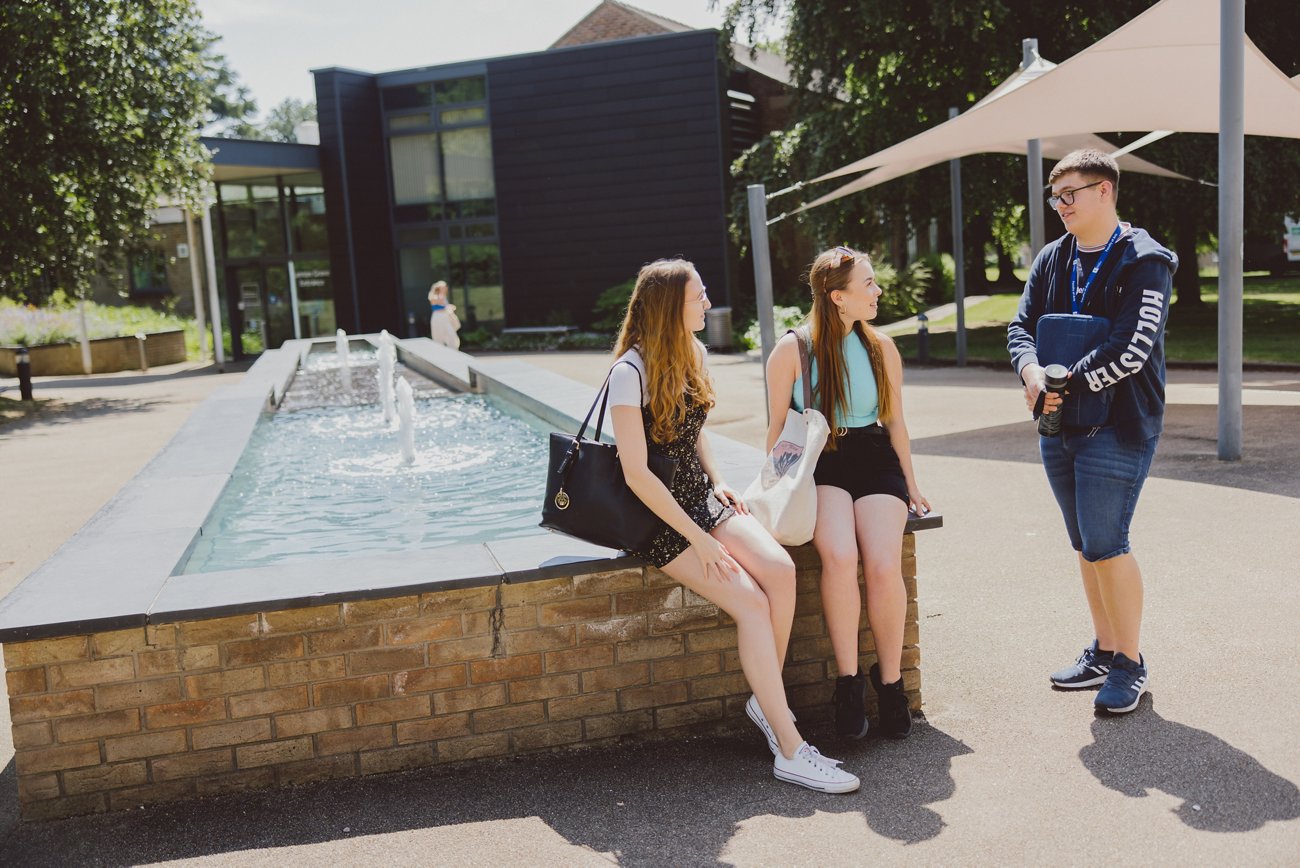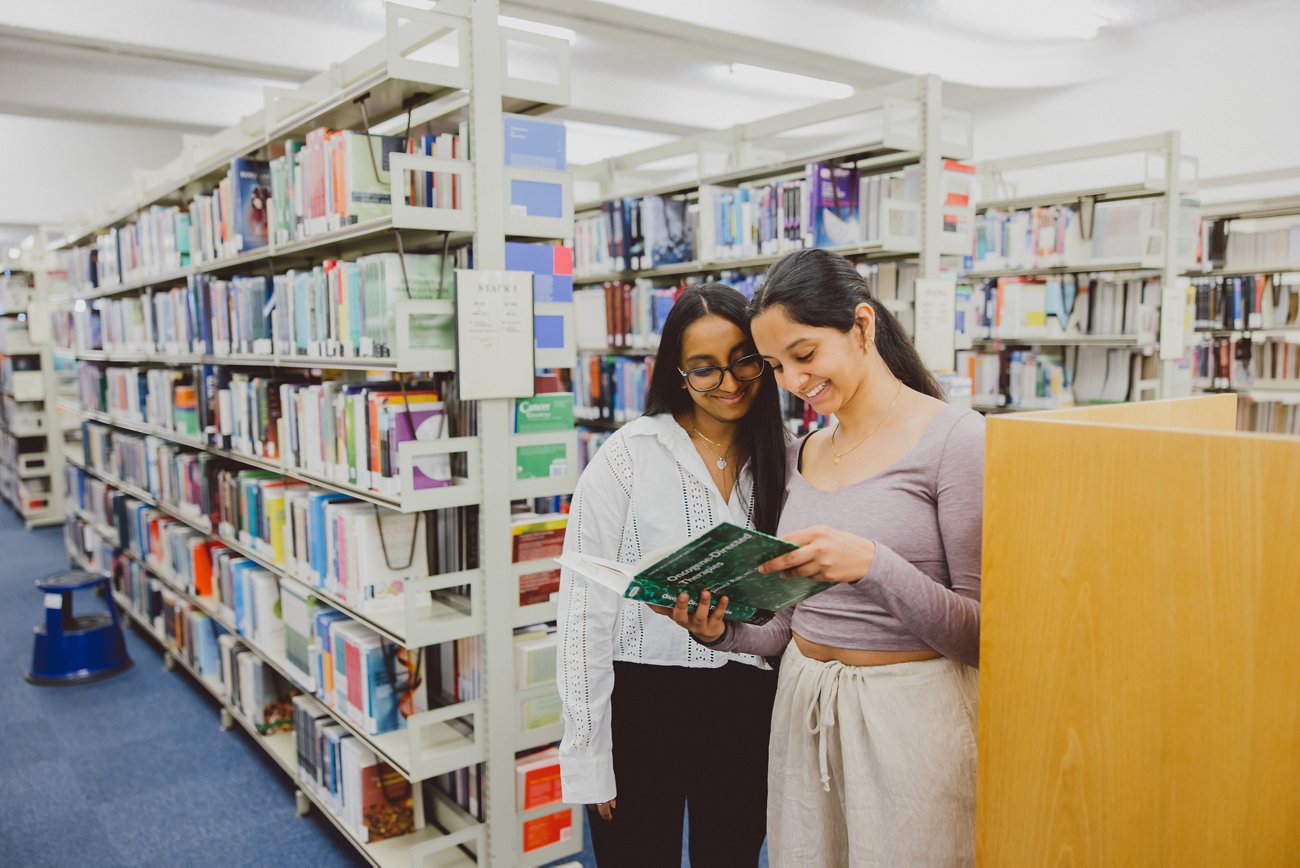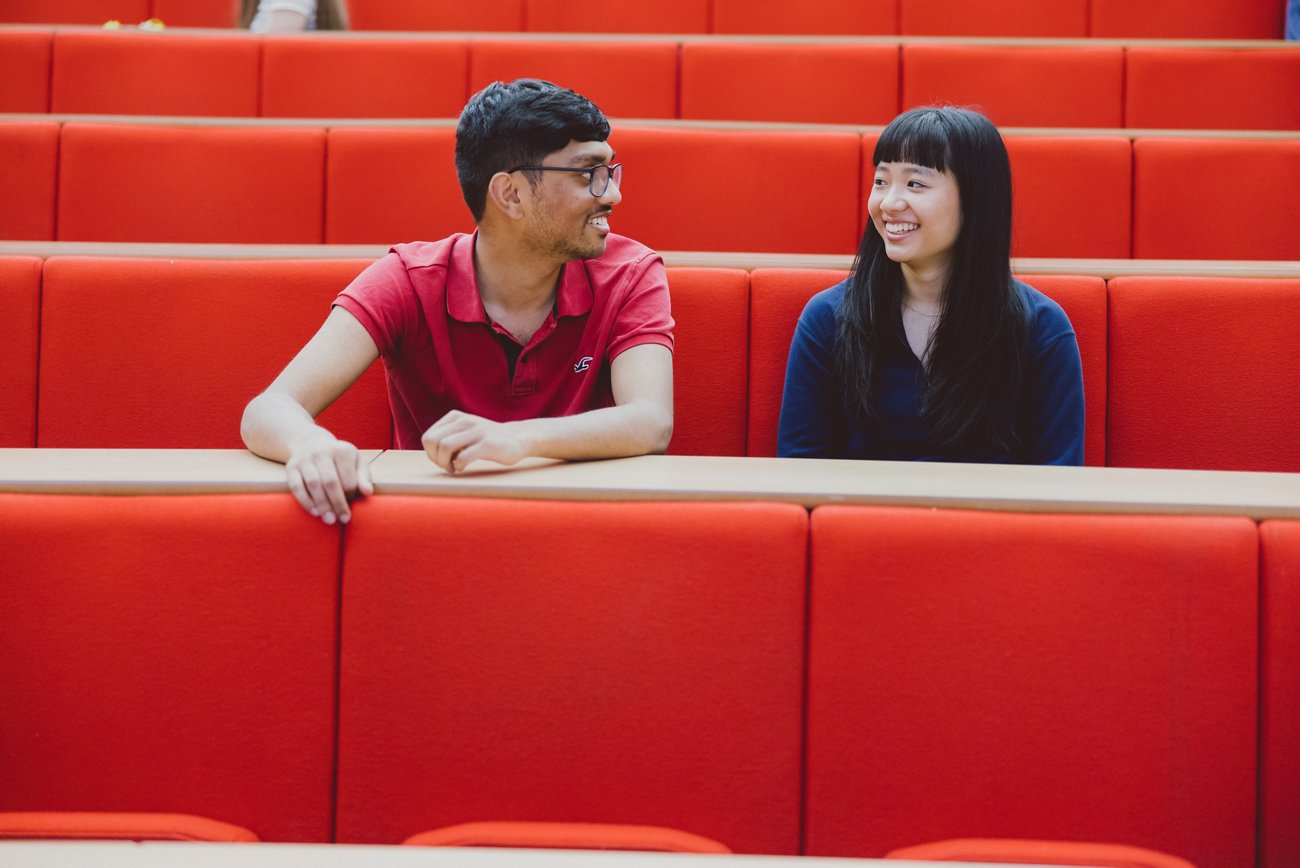

Harriet at her undergraduate graduation
What made you want to pursue a masters at Nottingham?
I decided to do my masters at Nottingham because I got very settled in the city. I came to Nottingham in 2018 and graduated from my undergrad in summer 2022. I knew the campus, I had a job on campus, I was very invested in my society and a lot of my friends had stayed on for postgraduate study; that was a big motivating factor. Also, I was in the same department from my undergrad with my masters, and it meant that I already knew the teachers and had a quite close professional relationship with them.
Originally, I didn't want to do a masters. In my second year I thought, 'I can’t wait to get out of higher education and get a job', and then I did year abroad with work experience as a translator in Spain. I knew I was going to have to do a masters if I wanted more hands-on experience and practical, theoretical experience in translation.
What was the jump from undergraduate to postgraduate study like?
As a part-time student, it wasn’t as intense as I assume it could be. Staying in the same department and city made the transition much smoother. I have two modules per semester, one content module and then an optional module, making my workload very manageable.
Being a part-time student means that I’ve got more time to focus all of my energy on my content module, allowing me to go fully in-depth and ensure I understand it.

I'm really enjoying the fact that I can learn exclusively about something that genuinely interests me, and that also continues on from my love of language, which is what influenced my choice of undergrad degree.
What has the teaching and staff support been like?
Being taught by active researchers really boosts the quality of teaching you receive. Not only are you being taught by people who are passionate about your subject, you essentially have an on-tap resource to new discoveries and theories in your field! This is great for broadening your area of research or interest, and the staff are often very enthusiastic to discuss it with you, not just as students but as potential future academics.
Both academically and personally, the level of support I have received from staff during my MA has been of exceptionally high quality. I know that I can confidently go to any staff member on my course if I find that I’m struggling - whether that’s with module content, workload, or life in general - and they will make time to have a chat and guide me towards a solution.
Staff go the extra mile to help you get to where you want to be academically and professionally, even if you don’t know where that is yet! My postgraduate teachers are constantly signposting events, workshops, internship/job openings, etc. that they believe will genuinely benefit and interest us. Without this, I wouldn’t have found my translation mentorship which is supporting me in my studies and in preparing me for a career in translation!
What extracurriculars do you take part in at the university?
I am part of Musicality, the musical theatre society. I absolutely love it. I’ve been a member since I joined Nottingham and it’s been wonderful. There’s so much to do depending on how involved you want to be. Now, I’m also a part of the university’s Impact magazine. There’s so many things to do outside of work and uni - it’s been more than fulfilling.
What advice would you give someone who is considering doing a part-time master's degree?
Don’t shut down the idea of it because you’re scared that you’re going to fall behind your peers. It can be easy to think like that, but it’s important to work at your own pace.
I fully advocate for part-time study. It’s a great way to take a step back and be able to look after yourself a bit more, get involved with societies, work part-time or pursue your career goals whilst still furthering your education. It's a good way of preparing you for what the real working world is like.

As someone who has struggled with their mental health significantly throughout my life, this year I have already seen a significant difference in my stress management and my ability to prioritise self-care.
How has it been socially as a postgraduate student?
I’m lucky to still have my friends from my undergraduate degree that stayed, my society friends and work colleagues. I’m still surrounded by friends, so I’ve retained a really healthy and enriching social life.
In terms of keeping in contact with old course-mates, that’s really difficult. It’s been hard to adjust to, because I’ve gone from knowing everyone on my course to having to make new friends again. There's also knowing that next year they’ll have all graduated and moved on, meaning I having to repeat the same process again.
Did you have any apprehensions about postgraduate study?
My main apprehension was the financial aspect. I was worried about how much it was going to cost me, as I wasn't aware that you can get a loan to do your masters.
I was applying for funding and scholarships with the university, and then I also found out that the government have a standard master’s loan, to pay for your tuition. That swayed my decision to go down the part-time route because I would also be able to work more hours, enabling me to be a bit more financially stable. Other than that, I was confident that doing my degree part time was going to be the best decision for me.

I spend a lot of my time thinking about how my decisions will affect other people, rather than focusing on why they’re good for me. Once I got past that, I knew part-time was the best decision for me to make, and because I will be happier overall, other people should be happier with me.
What are your future career goals?
It's tricky because I'm just learning about all the different types of translation that’s possible. I think once I've graduated, ideally, I'd like to be in-house for maybe a year or two, to learn the ropes, get some contacts in the industry and build up my portfolio.
The ultimate goal is to go freelance, or at least part-time freelance and be able to control what I'm translating, so I'm doing the translations that I enjoy and not just what is needed of me.
What does success look like to you?

Success is not earning millions of pounds a year, or being famous, it’s all personal.
Success for me personally is that fulfilment, the feeling that you're achieving what you want to achieve in life on your own timeline, and knowing that you’re working towards your goals and that one day you’re getting to where you want to be. I think that’s a good measurement of success. And for me, success is being happy with where my life is at right now, which is exactly where it’s supposed to be.



